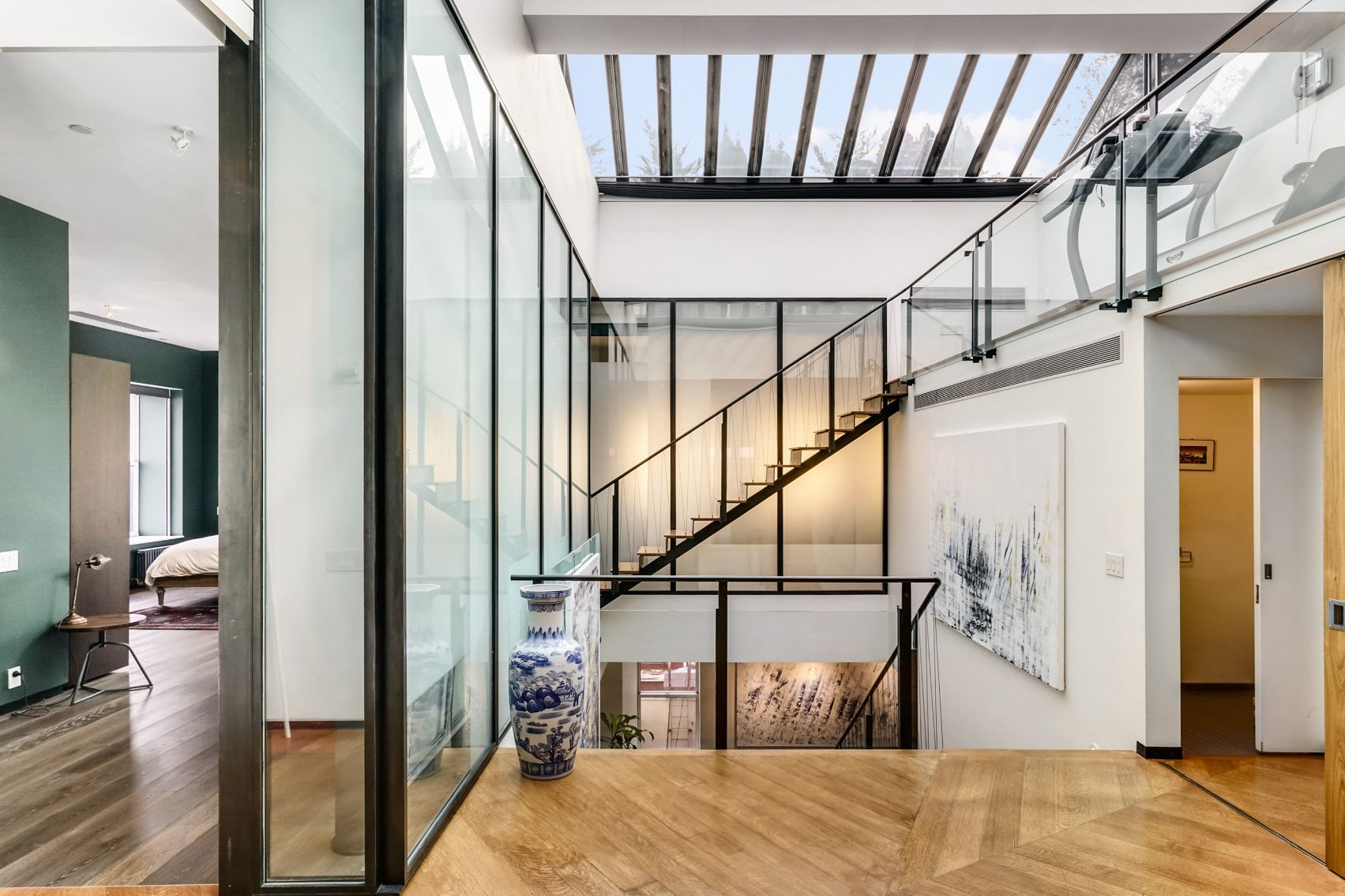Pros of buying a NYC penthouse include superior views and light, substantial outdoor space, tall ceilings, premium finishes, privacy, fewer neighbors, prestige and less noise.
Cons of buying a penthouse include higher pricing, potential loss of views from future construction, higher carrying costs, risk of large assessments, roof leaks, long elevator rides, greater liability, costlier renovations, climate considerations and greater difficulty when it comes to selling.
Click on the sections below to learn more about the key pros and cons of buying a penthouse apartment in NYC.
Estimate your buyer closing costs in NYC using Hauseit’s interactive calculator, and request a Hauseit Buyer Closing Credit to reduce your closing costs when buying. Selling? consider 1% Full Service or Hauseit Agent Assisted FSBO to save money on your home sale.
Table of Contents:
Pros:
Superior exposure, views and light
Substantial outdoor space
Tall ceilings
Premium quality finishes
Privacy and prestige
Quieter
Cons:
You might overpay for your penthouse
Views could be blocked by future construction
Higher carrying costs
Risk of large assessments
Risk of leaks
Greater liability
Lack of original, pre-war detail
Penthouses are harder to sell
Long elevator rides
Costlier renovations
Practical issues
Climate considerations
A penthouse typically offers superior exposure, views and light compared to all other apartments in the building.
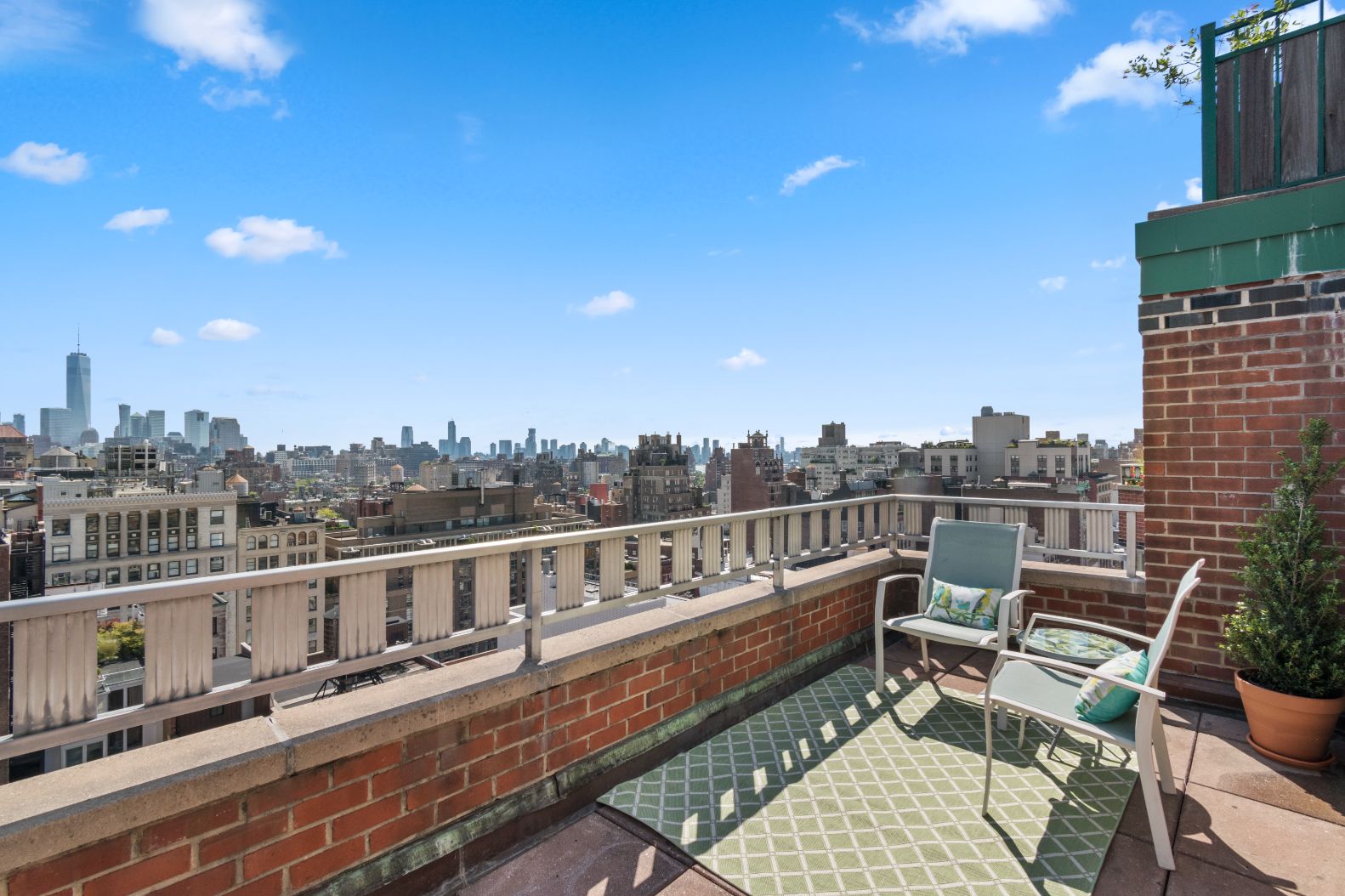
Being on the highest floor maximizes the odds of clearing the sight lines of adjacent structures.
That being said, a penthouse might not offer a compelling advantage in terms of views relative to other units on higher floors.
If the neighboring building to the south is 25 stories, a unit on the 27th floor may have a substantially similar view to a penthouse located on the 30th floor.
If you’re a buyer who cares mostly about views as opposed to the other advantages of a penthouse (i.e. outdoor space, exclusivity, privacy, etc.), you might be better off buying a higher floor unit since it won’t command the full penthouse pricing premium.
Penthouses in NYC typically offer expansive outdoor space which can be in the form of a private roof deck, terrace, balcony or some combination thereof.
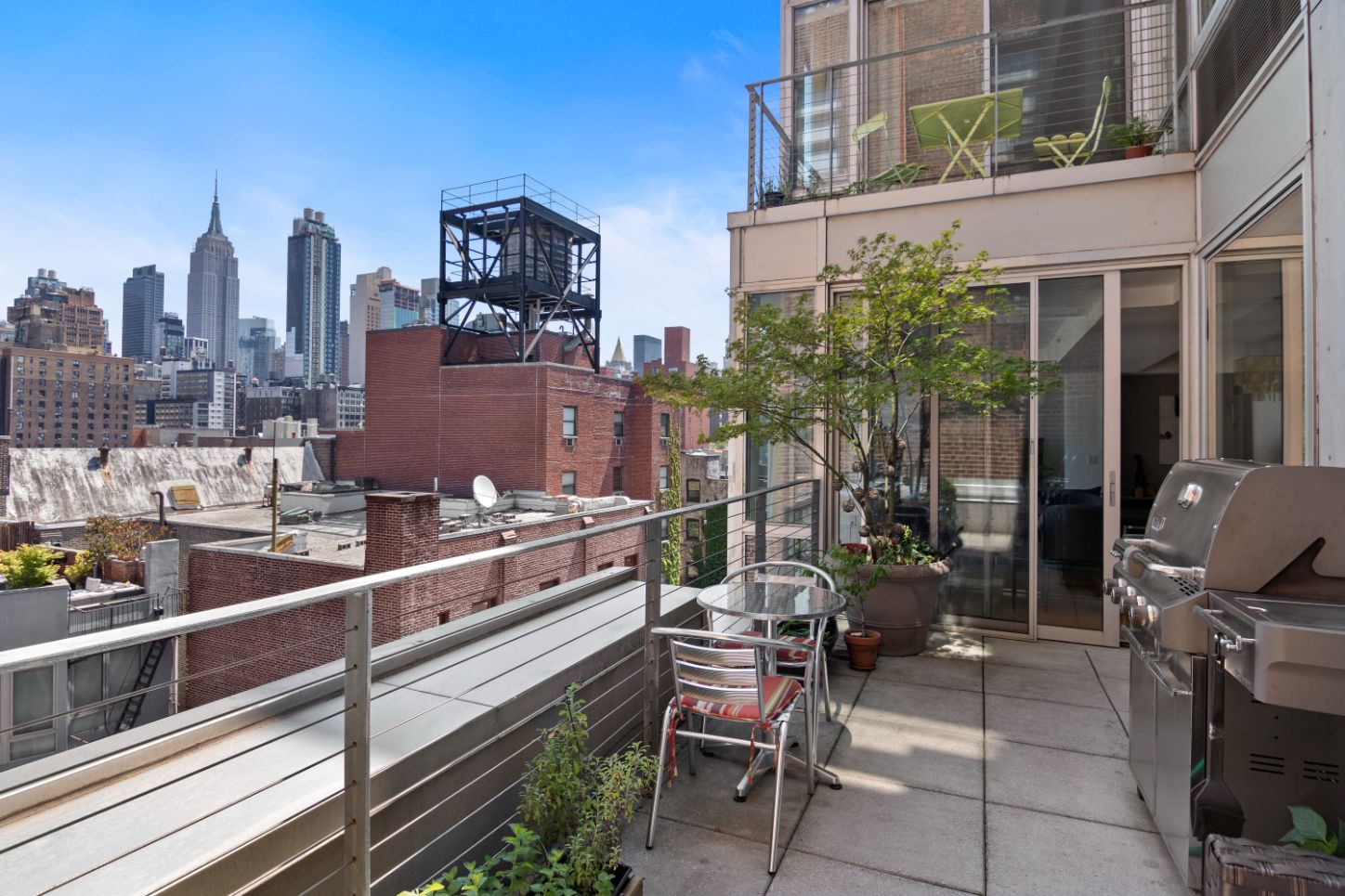
It’s not uncommon for penthouses to offer multiple outdoor spaces. For example, a penthouse might have one large private roof deck off the main living area in addition to a smaller terrace adjacent to the master suite.
In addition to electrical and water connections, the private terrace of a NYC penthouse may even have a hook-up for a gas grill. Some NYC penthouses may even have a hot tub on the terrace.
A Full Service Listing for 1%
Sell your home with a traditional full service listing for just one percent commission.
Penthouses usually feature premium quality finishes, such as Miele or Viking appliance packages, high-quality stone and tile in kitchen and baths as well as high-end hardwood floors and cabinetry.
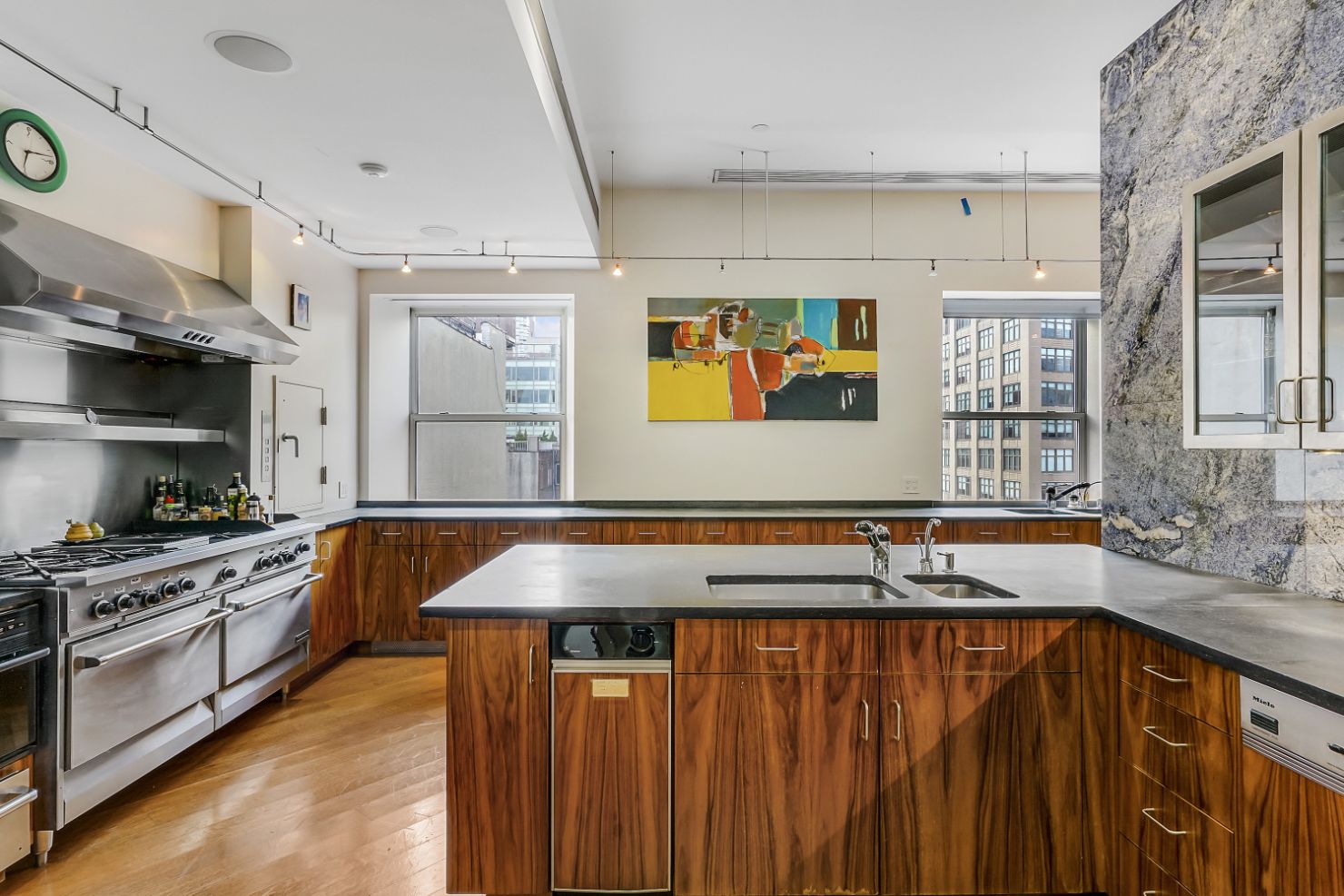
While high end finishes add substantial cost, this investment adds longevity and allows a property age more gracefully.
Penthouse apartments in NYC offer additional privacy in the form of fewer neighbors as well as prestige and exclusivity. Since you’re almost always on the top floor, there’s no risk of hearing your upstairs neighbors.
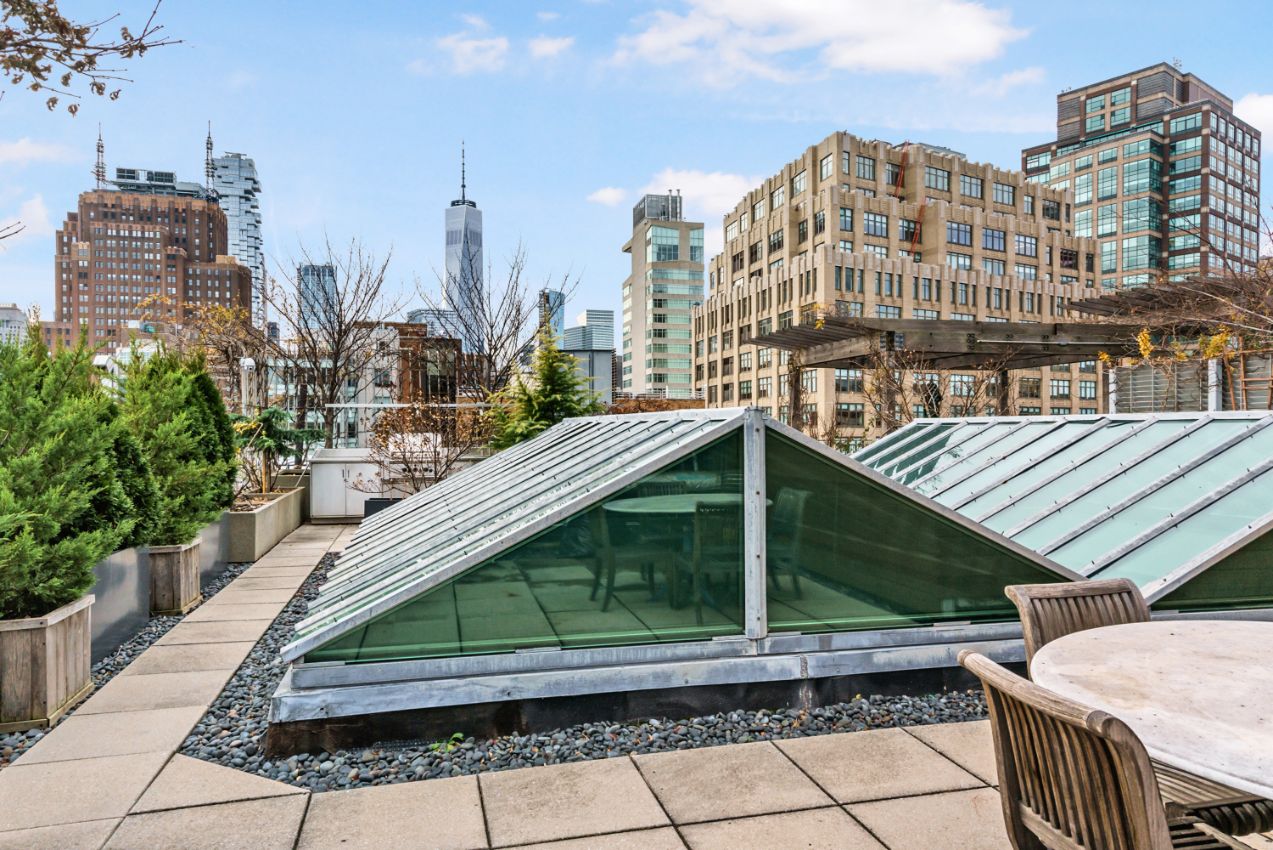
Moreover, penthouse apartments typically have no same-floor neighbors (or perhaps just one or two) since the apartment takes up most if not all of the floor.
Owning a penthouse is also equally if not more prestigious than living in a NYC townhouse. In fact, many high net worth individuals strongly prefer penthouses over townhouses due to the former’s light, exposure and outdoor space with views.
A Full Service Listing for 1%
Sell your home with a traditional full service listing for just one percent commission.
NYC penthouses command a premium of up to 10% or more compared to traditional apartments, but there’s still a risk of overpaying. Many penthouses are deliberately listed with an overinflated price initially to see if anyone will bite.
You might have noticed that many penthouse listings either omit square footage or utilize an inflated figure.
These techniques are designed to mask the pricing premium associated with the penthouse vs. other units in the building.
Having a seasoned buyer’s agent is essential if you’re buying a high value penthouse property in NYC. A good buyer’s agent can help you analyze comps and negotiate effectively while also helping you compare the key risks and advantages between penthouse listings in different buildings.
A key risk of buying a NYC penthouse apartment is that your views and light could be blocked by future construction. While all NYC apartments face this risk, it’s more severe for a penthouse because you may have paid a large premium specifically for unobstructed views.
For example, you may have paid extra for the penthouse on the 12th floor vs. the 10th floor specifically because the building across the street tops out at 10 floors.
This means your view is unobstructed and therefore significantly better. But what happens if a two floor extension is added to the building across the street?
The first way to mitigate the risk of future construction blocking your view is to check whether the penthouse you’re considering has lot line windows. Since these windows can be lost at any time should your neighbor decide to develop upwards, make sure that the apartment’s most desirable views are not from lot line windows.
Another way to mitigate the risk of future construction blocking your views is to order a Sightline report. This report analyzes FAR calculations and other factors affecting air rights in order to assess the risk of future development in adjacent lots. Some sightline reports may even provide 3D renderings to visually illustrate what might happen to views from your unit under a maximum development scenario.
A Sightline report can be ordered from 3rd party vendors such as TitleVest, a title insurance company.
A Full Service Listing for 1%
Sell your home with a traditional full service listing for just one percent commission.
It should come as no surprise that penthouses have higher carrying costs, but some buildings are particularly punitive in how they apportion common charges (in the case of a condo) or monthly maintenance (in the case of a co-op) to penthouses.
How much you pay in common charges or maintenance is determined by the relative ownership percentage of the building assigned to your apartment.




